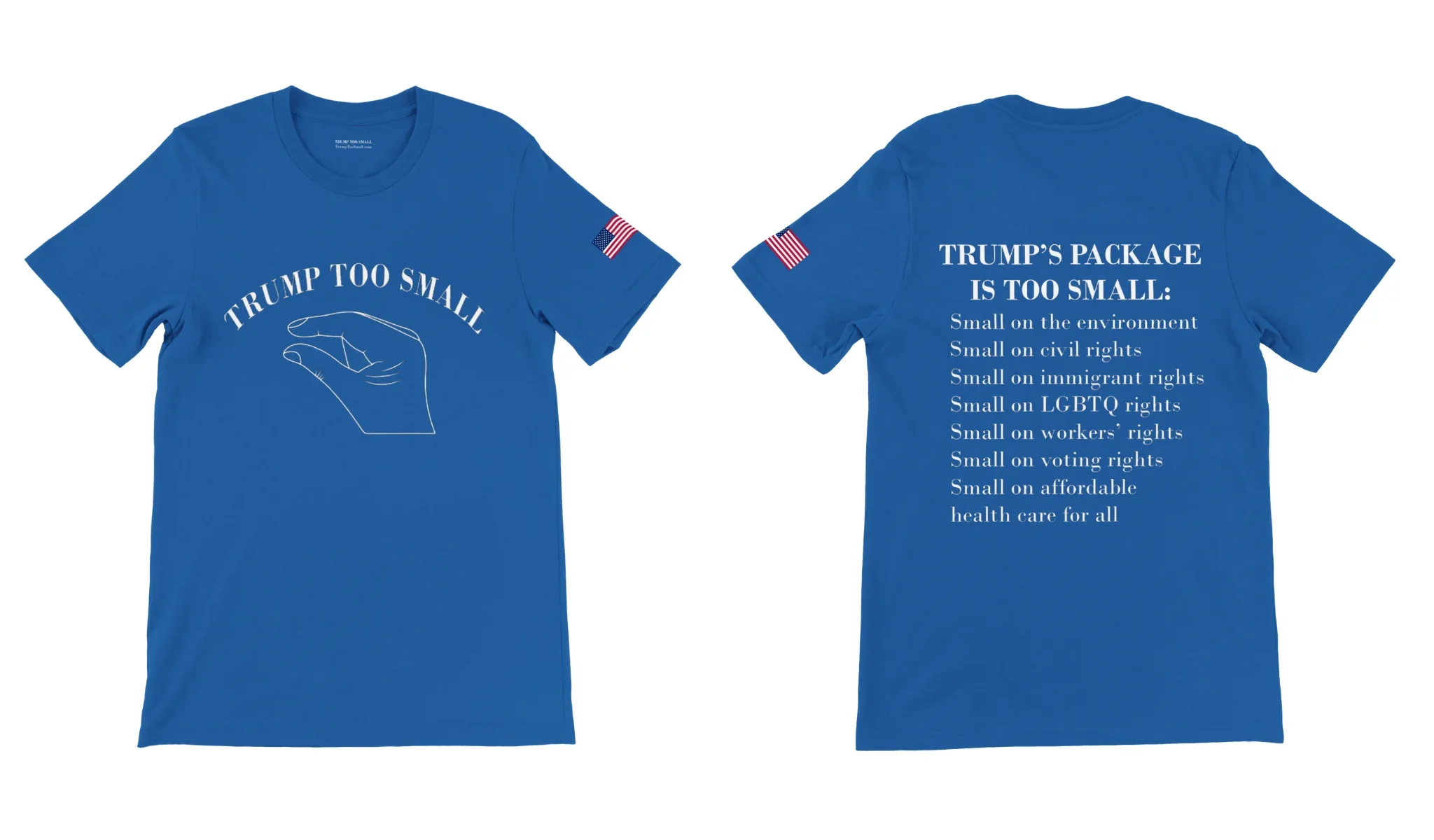Hands off: ‘Trump too small’ can’t be trademarked, Supreme Court rules
An individual’s attempt to trademark Donald Trump’s name was rejected by the Supreme Court
A man’s attempt to trademark the phrase “TRUMP TOO SMALL” has run its course after the Supreme Court ruled that the law protecting individuals from having their name trademarked without their consent does not violate the First Amendment.
In a mostly unanimous decision on Thursday, Justice Clarence Thomas said the law restricting the trademarking of names reflects the, “historic rationale of identifying the source of goods” to ensure “customers know the source of a product”.
“A party has no First Amendment right to piggyback off the goodwill another entity has built in its name,” Justice Thomas added.
Steve Elster, tried to trademark the phrase “TRUMP TOO SMALL” after making and selling t-shirts with the slogan and a list of the former president’s policies which he dubbed “small”.
The US Patent and Trademark Office (USPTO) denied the trademark, claiming it violated a portion of the law that prevents the trademarking of an individual’s name without their permission. Mr Elster disputed that decision and argued “Trump” was part of his right to criticize the government under the First Amendment which protects freedom of speech.

The court’s decision rejects Elster’s attempts to trademark the phrase in this instance but declines to rule if all “viewpoint-neutral trademark restrictions are constitutional.”
The decision was not unexpected.
During oral arguments in November, justices appeared unmoved by Mr Elster’s argument that refusing the trademark would stifle free speech.
Justices Thomas, Sotomayor and Jackson questioned how the refusal to approve a trademark application violates the First Amendment if Mr Elster was still permitted to print and sell the shirts.
“He can sell as many shirts with this saying and the government’s not telling him he can’t use the phrase, he can’t sell it anywhere he wants,” Justice Sotomayor said. “There’s no limitation on him selling it. So there’s no traditional infringement.”
Under Section 2 of the US Trademark law, known as the Lanham Act, a trademark can be refused if it “consists of or comprises a name, portrait, or signature identifying a particular living individual except by his written consent” and if it “may disparage or falsely suggest a connection with persons.”
That does not prevent an individual from making or selling a product though.
Elster’s “Trump too small” shirts featured a drawing of a hand making a small gesture — a nod to a 2016 presidential campaign moment when Florida Senator Marco Rubio joked Trump had “small hands.”
“You know what they say about men with small hands,” Mr Rubio said at the time. “You can’t trust them.”
When Mr Trump responded to Mr Rubio’s joke, Mr Elster said he took that as a “topic for political discussion” and began printing the shirts.
The back of the t-shirts featured a list of areas where Mr Elster believed Mr Trump’s policies were “small” like LGBT+ rights, civil rights, the environment and more.
Vidal v Elster is a case about trademark law and the right to trademark a person’s name without their consent, even if it is for political speech.
Join our commenting forum
Join thought-provoking conversations, follow other Independent readers and see their replies
Comments
Bookmark popover
Removed from bookmarks